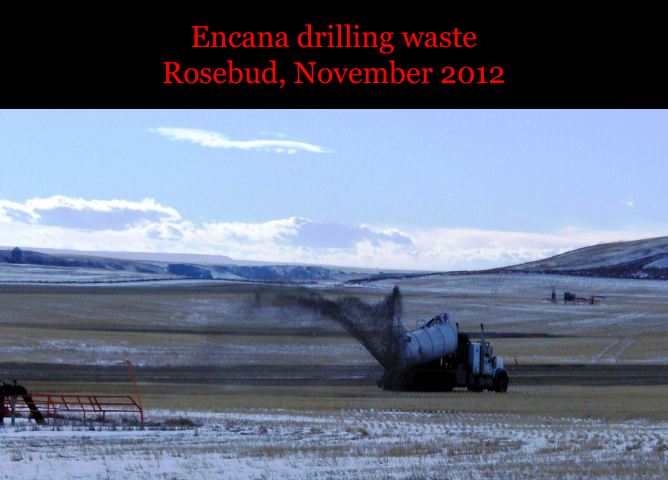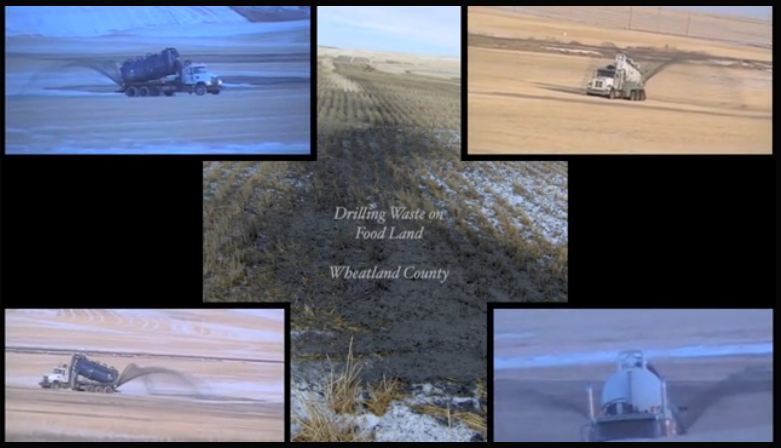COMMENTARY: Fracking puts farming industry in jeopardy by Marilyn Cameron, January 16, 2018, Chronicle Herald
In case you haven’t noticed yet, the Nova Scotia Department of Energy’s website has posted an Onshore Petroleum Atlas which lends credence to the potential economic benefits of fracking in the province.
I am very concerned that our government intends to reopen a debate about this dangerous gas extraction process despite implementing a moratorium on fracking in 2014.
So what has changed since that time?
Fracking is known to be harmful to groundwater, destroys food-producing soils, pollutes the air, industrializes rural communities and rural landscapes, and will serve to worsen the effects of climate change.
Nova Scotians demanded this moratorium and are counting on the recently re-elected government to uphold and respect this wise decision and not waste time and money promoting something we want permanently prohibited.
One argument against fracking that does not get the necessary attention it deserves is its impact on farmland.
Ninety-five per cent of the land covered by onshore leases is farmland. Onshore leases encompass at least three-quarters of Nova Scotia’s farmland.
Can we afford to lose so much farmland?
Nova Scotia is one of the few areas in the world with unique soils and a microclimate that can support a wide diversity of crops such as tree fruits, grape production, berry fruits and just about any vegetable that can be grown within Canada. Only a couple of other areas in Canada can make such a claim — and much of that land has already been paved over.
Nova Scotia farmers and the Nova Scotia Federation of Agriculture have been asking the province to step up and place stronger provincewide protection on farmland to prevent non-farm development from occurring — with good reason.
Speculation on farmland drives up the price of land and takes it directly out of the hands of young or new farmers who want to grow food for Nova Scotians.
A lot of speculation is occurring in agricultural areas and we are losing our grip on this vital resource. We have also experienced water shortages in recent years and any activity that could degrade or deplete it would be detrimental to agriculture.
Our farms generate over $600 million in direct sales each year and more than $2 billion in agri-food processing spinoffs. Farming creates 6,500 full-time and 5,500 part-time jobs each year.
Agriculture has the capacity to double its production — but available land is a limiting factor. Not only are farms beneficial to our economy but they are the backbone of our rural communities, are essential to our food security, are needed for wildlife habitat, and create tourism/agri-tourism opportunities.
Fracking is temporary and destructive. The industry expands operations at a constant rate, chewing up more and more land as old wells run dry and new ones open up. If we open the door to this industry, we won’t be able to close it.
Farming, on the other hand, along with all its benefits, can last forever. We need to get behind our farmers and support a continued moratorium on fracking and more protection for our food producing areas.
In 2014, the government commissioned a review of fracking and recommended that “independently conducted research of a scientific and public participatory nature” is needed and that “Nova Scotia should design and recognize the test of a community permission to proceed” before any exploration occurs. The report also emphasized the need for applying the precautionary principle to such exploration — do nothing until it is proven doing something is not harmful. To date, none of these recommendations have been realized.
We need to leave fossil fuels in the ground and instead invest in renewable energy development — meeting our climate targets in a way that benefits Nova Scotians. There are now nearly 300,000 jobs in renewable energy and energy efficiency in Canada, which is already outpacing that of oil-and-gas development.
Nova Scotians deserve better than being dragged 2,000 miles down a dead-end road. Numerous communities across the province have made it very clear they do not want to see fracking in Nova Scotia.
If you agree, make sure your government hears from you and tell them it is time to put our energy into supporting industries that meet 21st-century realities and needs.
Marilyn Cameron, of Hawthorn Hill Farm, lives in Grafton, Kings County. She is a member of the Annapolis Valley Farmland Trust Association and No Farms No Food (a citizens’ coalition for protection of farmland in Kings County). [Emphasis added]


